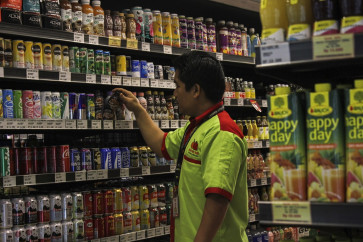Mid-range hotel market in Indonesia remains lucrative
Despite a flat occupancy rate and increasing supply over the past few years, there is still room for the hotel industry to grow, particularly in mid-scale hotels in Indonesia, hotel data tracker STR Global says
Change text size
Gift Premium Articles
to Anyone

Despite a flat occupancy rate and increasing supply over the past few years, there is still room for the hotel industry to grow, particularly in mid-scale hotels in Indonesia, hotel data tracker STR Global says.
Jesper Palmqvist, STR Global's Asia Pacific director, said that with the recent drop in demand affecting hotels, one of the key strategies to a speedy recovery was to try to maintain rates at a reasonable level.
'There is a continually increasing middle class in Indonesia, and domestic tourism is so big here. They [hotel chains] need a solid mid-scale product. There is absolutely room for new property,' Palmqvist said during a press conference at the Hospitality Investment Conference Indonesia (HICI) on Tuesday.
Data from STR Global shows that in the first quarter this year, the country saw a 12 percent decrease in its occupancy rate and an 8 percent increase in supply as compared to the same period in 2014.
The data revealed that Bandung and Jakarta had seen a drastic 15 percent decline in occupancy during the first quarter this year, as compared to the same period last year.
Bali had also took a big hit with an 11 percent plunge, particularly in January, the report said.
STR Global suggested that the steep decline in the occupancy rate was due to the Administrative and Bureaucratic Reform Ministry's circular issued in November last year, barring government institutions from organizing meetings and events at hotels as part of its efficiency program.
Following protests from the hotel industry, on April 1, the ministry issued another regulation detailing the events or activities that could be held at hotels and how the ministry would supervise government-funded events carried out at hotels, annulling the previous circular.
STR global said the second quarter of this year had got off to a good start with the Asian-African Conference commemoration in April, which saw occupancy rates reach their peak of over 90 percent in Jakarta's golden triangle area.
Pacific Asia Travel Association (PATA) chairman Kevin Murphy said investors should not rush to build five-star hotels in the country, particularly in secondary cities.
'Indonesia has four to five large hotel companies, expanding very much in two to three star hotels, and it's very good for domestic and international travelers, particularly in smaller towns and cities, where you don't have a lot of people demanding accommodation,' Murphy said.
'This growth and the strengthening of mid-range hotels are excellent and very good things for the future and growth of the tourist economy in Indonesia,' he continued.
Budget hotel chain Red Planet Indonesia CEO Ng Suwito said the government's regulation to ban public officials from meeting at hotels did not have a significant impact on the budget hotel occupancy rate.
According to him, Red Planet Indonesia, which has operated seven hotels across the country since 2012, has an average occupancy rate of above 60 percent and most of its customers are Indonesian.
'In the budget hotel sector, we see a steady increase in occupancy rates. The demand is still there particularly from the domestic market,' Suwito said. Suwito added that the hotel chain was planning to open five hotels this year in Jakarta, on the back of increasing tourist arrivals.
Data from the Central Statistics Agency shows the aggregate star-hotel room occupancy rate in 27 provinces was 49.13 percent on average in March, a 2.1 percent decrease from the same month last year, and a 1.5 percent increase from February.









